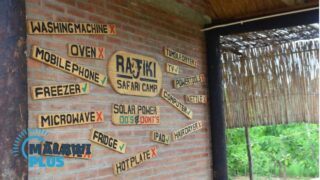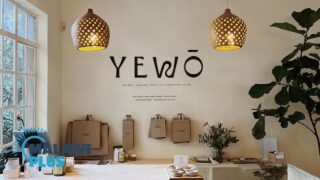Seed Co Malawi Factory Tour
About Seed Co Malawi
| Total Number of Staff | 50 (Full Time) and 120 (Temporary) As of January 2022 |
|---|---|
| Address | Area 51, P/Bag 421, Lilongwe 4, Malawi |
| Phone | +265 (0) 1 712 074/ 1 712 062/ 1 711 014/ 1 711 017 |
| seedco@seecomalawi.net | |
| Website | https://www.seedcogroup.com/country/malawi/ |
| Opening Hours | 8:00-17:00 (Mon-Fri) |
Seed Co is the leading certified seed company authorized to market seed varieties developed by itself, government and other associated seed breeders in over fifteen African countries.
They have maintained a strong market share among communal and commercial farmers from years of intensive investment in Research & Development.
The company is involved in the breeding, multiplication and distribution of mainly hybrid seed varieties for a variety of crops.
Seed Co develops and markets certified crop seeds, mainly hybrid maize seed, but also cotton seed, wheat, soya bean, barley, sorghum and ground nut seed.
Most of the hybrid and non-hybrid cereals and oil crop seed varieties are proprietary, having been developed and bred at the research and breeding programmes.
Seed Co Products


Factory Tour
“IT STARTS WITH THE RIGHT SEED“
Quality Assurance (The Lab)
Step1 The Laboratory
 When the seed arrives, the first step is to test it for defects. They check if the seed has weevils and if it has the right amount of moisture content.
When the seed arrives, the first step is to test it for defects. They check if the seed has weevils and if it has the right amount of moisture content.
In order for the seed to be approved it must have 2.5% of defective level and the water moisture must be 13%.
If the moisture content exceeds this percentage they return the seed so that the farmers can dry it more.
In terms of germination, the seed should not exceed 95% germination level.
For legumes it should bot be less than 80%.
If a seed has been returned because it is defective, they trace whether it was a fault on their end or the fault of the farmer.
The entire process of analysis in the lab takes 10 minutes.
Receiving Warehouse
Step 2 Receiving Warehouse

 This is where parent material for the seed is received.
This is where parent material for the seed is received.
They have hybrid soya and hybrid maize. The parent materials are male and female. So in the field, these plants undergo a hybrid process.
Seed Co provides parent foundation seed to growers.
The growers then do multiplication of seed with support from the technical team then goes to inspect the seed.
When time for pollination comes, they eliminate the female seed to avoid self-pollination.
This is the process of removing immature pollen-producing bodies, the tassel from the tops of maize plants and placing them on the ground.
It is a form of pollination control employed to hybridize two varieties of maize.
After this, the seed can be harvested and it is brought here and Seed Co eventually supplies it to farmers.
The major varieties which are on the market are SC537, SC403, SC719 and SC627.
Processing Warehouse
Step3 Processing
Stage 1: Cleaner After receiving the seed, it is fed into a machine which is known as the cleaner.
After receiving the seed, it is fed into a machine which is known as the cleaner.
Stage 2: Winnower From there, its processed by a winnower machine which separates chaff from grain.
From there, its processed by a winnower machine which separates chaff from grain.
This machine is able to select even the smallest stones from the seed so that only the finest product is selected for packaging.
This machine is how they manage to maintain the most quality products.
Stage 3: Jog Conveyor This is used for conveying, cleaning and drying grain and to prevent wet kernels from ‘caking’.
This is used for conveying, cleaning and drying grain and to prevent wet kernels from ‘caking’.
Stage 4: Treater From the conveyor, the seed is then passed into the treater where there is a mixing of chemicals which are applied directly to the seed to help control the number of pests that attack seeds.
From the conveyor, the seed is then passed into the treater where there is a mixing of chemicals which are applied directly to the seed to help control the number of pests that attack seeds.
Stage 5: Hopper  The seed is taken into a hopper which goes to elevator number 6 which then throws the seed into either the first silo or the second silo depending on the pack size.
The seed is taken into a hopper which goes to elevator number 6 which then throws the seed into either the first silo or the second silo depending on the pack size.
The hopper makes sure that the size seed you are using for the calibration is the correct size for the selected plates.
Stage 6: Packaging After the rigorous process of selecting the best seeds, it is now time for packaging.
After the rigorous process of selecting the best seeds, it is now time for packaging.
There are different machines that are used for packaging.
Here, there is a 1kg-2kg packer while the other packer is for 5kgs.
Stage 7: Sealer After packaging, the produce is fed into the sealer whereby the heating capsules seal the plastics.
After packaging, the produce is fed into the sealer whereby the heating capsules seal the plastics.
The sealed packets are then offloaded onto these 2 tables which then pack the seeds into mother bags so that they don’t have loose packets.
Its easier to sell the, when they are in 50kg packs.
After they are packed into the mother bags, they are sewn and taken to the dispatch warehouse.
This entire process takes 20-30 minutes.
Dispatch Warehouse
Step 4 Dispatch
 Fumigation and Sampling
Fumigation and Sampling
Before dispatch, the seed goes through a fumigation and sampling process whereby a tarpaulin is placed over the packs and the seeds are fumigated per pack.
After this process, the seeds are loaded for transportation.
As they are being loaded, the packs are counted to make sure that the correct amount of packages is loaded.
The Cold Room This is where preservation of vegetables and foundation seed takes place for the foundation seeds.
This is where preservation of vegetables and foundation seed takes place for the foundation seeds.
The stock that does not go to the field is kept here to make sure that it can be stored for future use.
The seeds that are kept in this room can be used even after 4 years.







